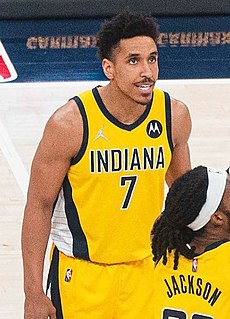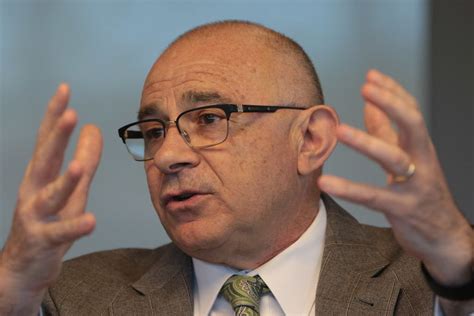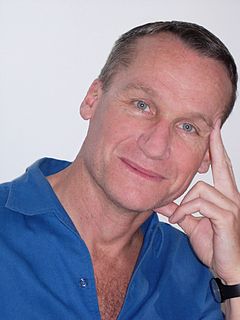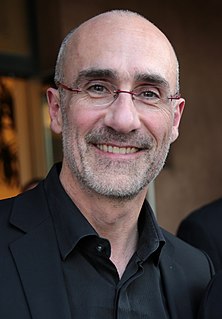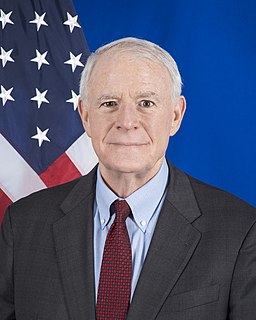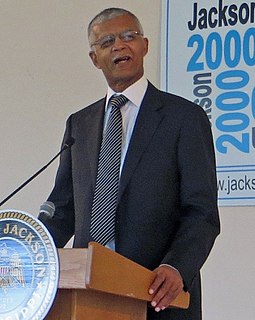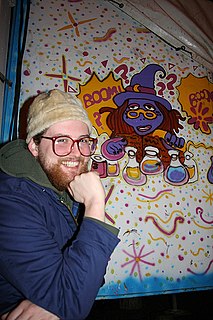A Quote by Matthew Desmond
Many times when we are talking about displacement, we talk about it within the frame of gentrification, which focuses on transitioning neighborhoods. But man, every city I've looked at, Milwaukee included, most evictions are right there, smack dab in ungentrifying, poor, segregated communities.
Related Quotes
One consequence of racism and segregation is that many American whites know little or nothing about the daily lives of African Americans. Black America's least-understood communities are those poor, hyper-segregated places we once called ghettos. These neighborhoods are not far away, but they might as well be on the moon.
When I talk about the city, I talk about a city that elevates people, which is the strength of New York. We always had the ability to do that. We had the services to do that: good schools, living-wage jobs. We're moving away from that toward a two-tiered system: a small group of very wealthy people and the rest of the city, poor and working poor.
People speak because they are afraid of silence. They speak mechanically whether aloud or to themselves. They are intoxicated by this vocal gruel that ensnares every object and every being. They talk about rain and fine weather; they talk about money, about love, about nothing. And even when they are talking about their most exalted love, they use words uttered a hundred times, threadbare phrases.
Conservatives are better talking about opportunity and growth in the abstract, while liberals talk more about poor people. Right now we [americans] need a good, optimistic, conservative opportunity ideology that is totally geared toward lifting up the poor. That's what I most want to see in candidates.
In my writing, I want to address all communities, you know. I've spent many years talking about Chicano culture, Chicano history, and at the same time, I've also been in many communities and presented my work in many communities, in many classrooms, and that's where my vision is and my delight is and my heart is.
I think, at some level, we see young people all over the country mobilizing around different issues, in which they're doing something that I haven't seen for a long time. And that is, they're linking issues together. You can't talk about police violence without talking about the militarization of society in general. You can't talk about the assault on public education unless you talk about the way in which capitalism defunds all public goods. You can't talk about the prison system without talking about widespread racism. You can't do that. They're making those connections.
When we talk about economic growth, we're not talking about bringing a bunch of companies in that can make a bunch of bucks and hope they spend 'em in our city. We're talking about creating jobs, creating new companies and then we move from there to talk about cooperatives which can become some of those jobs, some of the solidarity economy where we can begin to band together people so they'll understand that a job is not a single individual affair but a collective affair.
I think living in Baltimore and being a part of the community and trying to be part of as many communities as possible within the city, the best thing that anyone can do in Baltimore is just to be a part of it and contribute to it and to not see it as...A lot of people from outside the city see this city for its blight and I feel like people who live within the city do the opposite and see this city for what defines it as, in my mind, the most beautiful place to live.
We're sitting in here, and I'm supposed to be the franchise player, and we in here talking about practice. I mean, listen, we're talking about practice, not a game, not a game, not a game, we talking about practice. Not a game. Not, not... Not the game that I go out there and die for and play every game like it's my last. Not the game, but we're talking about practice, man. I mean, how silly is that?.. And we talking about practice. I know I supposed to be there. I know I'm supposed to lead by example... I know that... And I'm not... I'm not shoving it aside, you know, like it don't mean anything. I know it's important, I do. I honestly do... But we're talking about practice man. What are we talking about? Practice? We're talking about practice, man.

